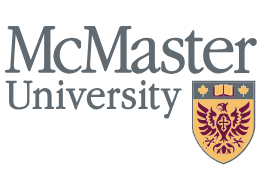MIRA Postdoctoral Fellowships in Aging Research
McMaster University has identified aging as a research priority, and is focusing its research strength on addressing the most pressing questions facing the aging population. The University has made a transformative investment in this critical area by creating the McMaster Institute for Research on Aging (MIRA), which aims to support and connect researchers and aging research platforms in all six Faculties at McMaster.
MIRA’s mandate is to support innovative research approaches that build upon McMaster’s culture of interdisciplinary collaboration and, where appropriate, to engage older adults and other key stakeholders throughout the conceptualization, evaluation and implementation of interventions and technologies.
To this end, MIRA will support the recruitment of three interdisciplinary post-doctoral Fellows in the field of aging research. The research projects supported by these Fellowships should aim to generate evidence that contributes to the well-being of older adults.
Details
Three one-year awards are available. Each award is valued at $50,000 for salary, plus up to $15,000 per recipient to be used for research expenses and professional development. The proposed supervisor is expected to contribute at least $10,000 to fund the benefits of the Fellow. The award may be dispersed over one or two years, provided the supervisor and/or candidate are able to secure funding to meet the minimum requirements for post-doctoral funding in their department for each year of the Fellowship.
Prospective post-doctoral Fellows are invited to submit a research plan that focuses on interdisciplinary, impact-driven approaches in the study of optimal aging through one or more of the following research areas:
- The impact of exercise on mobility
- The interrelationship between psychological function and social function
- Causes and consequences of multimorbidity, frailty, and polypharmacy
- The role of caregiving, equity, economics and transportation in optimal aging
- The understanding of the biological mechanisms of diseases of aging
- Evaluating approaches to knowledge translation to improve optimal aging
- The use of technology to promote optimal aging and aging in place
The applicant and principal supervisor are expected to involve at least two other researchers from two different Faculties (outside of the principal supervisor’s Faculty) as mentors in the development of an interdisciplinary research plan. The proposal should clearly indicate how the supervisor and two mentors will contribute to the development and execution of the interdisciplinary project, and how this interdisciplinary approach will bring value to the study.
Eligibility and Conditions for the Award
Canadian citizens, permanent residents and international candidates are eligible for the award. Applicants must have completed their PhD within the last three years, and must be able to begin the fellowship in fall 2019. This opportunity is intended for the recruitment of new Fellows to the University rather than retention of existing Fellows.
The Fellowship is tenable at McMaster University, where the Fellow is expected to pursue full-time postdoctoral study and research for the term of the Fellowship. The supervisor or supervisory team must be able to contribute at least $10,000 in financial support to fund additional salary and benefits for the Fellow.
Proposal Components and Deadline
Applications are due on Mai 1, 2019 at 11:59 p.m., and should be submitted as one PDF document (except for the confidential letters of support, which should be sent separately, in confidence) by email to mirainfo@mcmaster.ca.
Acomplete application will include the following:
- MIRA PDF Checklist;
- MIRA PDF Cover Sheet;
- Curriculum vitae of the candidate;
- Cover letter written by the candidate that clearly states
- 1) how the research project will meaningfully incorporate and engage cross-disciplinary perspectives;
- 2) how the project will impact the lives of older adults and advance the objectives of MIRA;
- 3) the rationale for selecting the supervisor and mentors; and
- 4) how the MIRA Fellowship will influence the candidate’s future career;
- Research proposal (three pages maximum, 11-pt Calibri or Arial font, standard margins) including a two-page description of the proposed research, a half page demonstrating the value and purpose of the interdisciplinary approach, and a half page describing the potential impact and future direction of the program of research, including proposed knowledge translation activities;
- One letter from the proposed supervisor confirming support for the research project and financial support of at least $10,000 for the salary and benefits of the Fellow. The letter should also note the alignment of the proposed Fellowship with the supervisor’s existing program of research. The letter should also describe the involvement of the two mentors from two different Faculties including
- 1) how their expertise and involvement will meaningfully advance the project; and
- 2) the mechanism through which their involvement will occur. Formal confirmation of participation of the two mentors will be requested from the successful candidate prior to the start of the Fellowship;
- Two confidential letters of support. One of these letters must be from the PhD supervisor or most recent postdoctoral fellowship supervisor. Both letters should be sent directly to MIRA at mirainfo@mcmaster.ca with the candidate’s name in the subject line.
Selection Process
MIRA will select the award recipients based on the quality, feasibility and impact of the research proposal, the value of the interdisciplinary approach, the academic performance of the candidate, and the alignment with MIRA’s goals and mandate. If a suitable candidate is not identified based on the feedback of the review committee, the award will not be offered.
Notification of Results
Winners are expected to be announced by July 2019.
